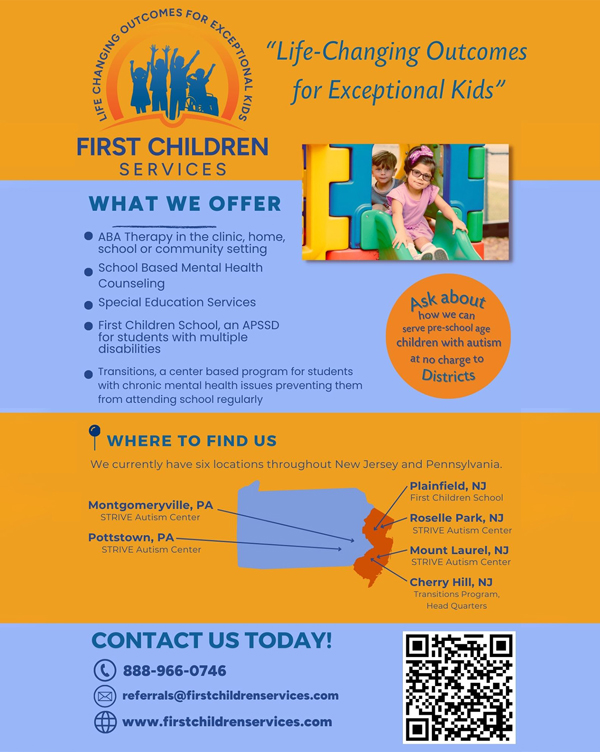The transition from childhood to adulthood can be a scary and difficult life experience for most people. It can be even more challenging for those diagnosed with autism and their families. This phase of life brings a blend of excitement and uncertainty, and the road to achieving greater independence can be complex. Autism service providers play an integral role by offering strategies to foster self-care and autonomy. It is widely known that as autistic individuals become adults and age out of children’s services, the supports that were once in place through insurance and school services come to a sudden end. It is paramount that autism service providers, school administration, related service providers, and families work together to bridge the gap with a transition plan to adulthood.

Transitioning into adulthood is an exciting and challenging period. Autism service providers can support and empower young autistic adults’ transition into adulthood by increasing independence. One way for service providers to increase independence is by teaching self-management skills. Self-management is essential to becoming more independent (Li et al., 2023.) This skill can assist autistic adults to have more control in identifying and pursuing their own goals. It is important that every individual adopts professional and personal goals that are meaningful to them. Some of these goals may consist of career, relationship, leisure, spiritual, financial, hygiene, and overall life goals. Self-monitoring is one component of self-management in which individuals observe and keep track of their own behaviors. Autism service providers can start to incorporate self-monitoring goals by collaborating with autistic adults to determine what behaviors are important to the individual to monitor. After selecting a behavior to monitor, a visual tool such as a checklist can be utilized as a measurement to visually support the frequency that targeted behaviors occurred.
Self-monitoring can also assist autistic adults in identifying their strengths, which could help them choose a career path. Selecting a career can be especially challenging for adults with autism. It is estimated that 85% of the autistic adult population in the United States is unemployed. It is also estimated that 50% of autistic adults in their 20s have never worked a paying job, even with having the skill set for the job (Palumbo, 2021). It is important that family members, service providers, and adults with autism work together to bring awareness of and address this workplace discrimination.
A key element to supporting and empowering autistic adults includes mental self-care. Traditionally, teaching autistic individuals how to care for their bodies is one of the first things we teach: wash your hands, brush your teeth, and dress yourself. These are clearly valuable skills necessary for achieving independence throughout the lifespan. However, mental self-care is frequently neglected, perhaps due to communication barriers and behavioral and/or cognitive challenges.
Imagine if self-care routines for the mind-body connection were integrated into adolescence rather than a reaction to a symptom later in life. Using a holistic approach could involve teaching autistic individuals to manage both their physical and mental well-being from an early age. What if ASD providers included the mind-body connection as part of a daily living routine as an antecedent strategy rather than a consequence strategy? It would look something like this…Wash your hands. Practice breathing techniques. Brush your teeth. Stretch your body. Get dressed. Eat healthy food. Go to school. Spend time with friends. Get fresh air. Take a shower. Listen to calming sounds/music. Consume positive social media. Eat well. Incorporating the mind-body connection as part of a daily routine can act as a proactive strategy rather than a response to emotional dysregulation only when it becomes problematic.
Family members, caregivers, and educators can model these habits and incorporate them into regular activities. Techniques such as mirroring healthy behaviors, using videos and peer models to demonstrate practices like breathing exercises and stretching can be useful and effective. By embedding mental health practices into early daily living skills, we equip autistic individuals with tools for long-term well-being. Just as we teach good hygiene and nutrition, integrating mental self-care from a young age promotes overall health and independence. The key is to address both physical and mental self-care together, ensuring a well-rounded approach to personal development.
Supporting autistic adults through life transitions is crucial for ensuring their well-being and success (Higgins, 2020). As they navigate different stages of adulthood, parents and guardians play a pivotal role in facilitating smooth transitions (Smith et al., 2021). This support often involves understanding and leveraging various systems and services designed to assist autistic individuals (Johnson, 2019). One key aspect is the Fiddle Foundation, an organization dedicated to empowering autistic adults (Fiddle Foundation, n.d.). It provides resources, advocacy, and a supportive community, which can be invaluable during transitions such as moving from school to employment or independent living (Fiddle Foundation, n.d.). Their programs often include skill-building workshops, mentorship, and guidance on accessing necessary services (Fiddle Foundation, n.d.). Guardianship is another critical consideration. As autistic adults reach adulthood, determining the need for guardianship or supported decision-making is essential (White et al., 2022). Parents may need to explore legal avenues to ensure their child’s rights are protected and that they have the support needed for making significant decisions (White et al., 2022). This process can vary by jurisdiction, so it’s important to seek advice from legal professionals specializing in guardianship and disability law (Black et al., 2023). DDD services (Division of Developmental Disabilities) offer vital support for autistic individuals, particularly in areas like employment services, residential support, and daily living assistance (Division of Developmental Disabilities, 2023). Parents can help by navigating the application processes, ensuring that their child receives the appropriate level of support and is aware of the services available (Division of Developmental Disabilities, 2023). The DDD’s resources can significantly impact an autistic adult’s ability to live independently and integrate into the community (Division of Developmental Disabilities, 2023). Finally, understanding the benefits of Social Security is crucial. Programs like Supplemental Security Income (SSI) or Social Security Disability Insurance (SSDI) can provide financial support to autistic adults (Social Security Administration, 2024). Parents can assist with the application process, ensure that their child’s needs are well-documented, and understand the ongoing requirements for maintaining benefits (Social Security Administration, 2024). Overall, a proactive approach by parents in utilizing these resources is essential for supporting autistic adults through their transitions (Higgins, 2020; Smith et al., 2021). Fiddle Foundation, guardianship options, DDD services, and Social Security—can greatly enhance the quality of life for autistic adults during major transitions.
For more information, visit firstchildrenservices.com.
References
the-art-of-autism.com/the-road-to-autistic-empowerment/
Black, A., & Roberts, L. (2023). Guardianship and disability law: Navigating legal considerations. Legal Publications.
Division of Developmental Disabilities. (2023). Services and support for autistic individuals.
Fiddle Foundation. (n.d.). About us. djfiddlefoundation.org/
Higgins, M. (2020). Supporting autistic adults through life transitions. Autism Support Journal, 15(3), 45-60.
Johnson, R. (2019). Understanding systems and services for autistic individuals. Journal of Autism Research, 22(1), 12-25.
Smith, J., & Brown, T. (2021). The role of parents in facilitating transitions for autistic adults. Family & Disability Review, 18(2), 78-91.
Social Security Administration. (2024). Social Security benefits for autistic individuals
White, C., & Green, S. (2022). Guardianship and supported decision-making for autistic adults. Disability Law Review, 29(4), 110-125.






